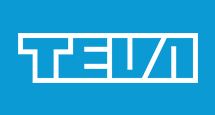Visiongain Publishes Microcarrier Market Report 2021-2031
29 October 2020
Visiongain has published a new report on Microcarrier Market Report : Forecasts by Equipment (Bioreactor, Culture Vessels, Cell Counter, Filtration System), Consumables (Sera, Serum Free Media), Microcarriers (Cationic, Collagen, Protein Coated), Application (Vaccines, Cell Therapy). PLUS Profiles of Leading Companies and Regional and Leading National Market Analysis. PLUS COVID-19 Recovery Scenarios
Global Microcarrier market was valued at US$ xx billion in 2020 and is projected to reach at a market value of US$ xx billion by 2031.
A microcarrier is a support matrix allowing for the growth of adherent cells in bioreactors. Micro carriersare typically 125-250 micrometre spheres and their density allows them to be maintained in suspension with gentle stirring, Micro carriers can be made from a number of different materials including DEAE-dextran, glass, polystyrene plastic, acrylamide, collagen and alginate. The micro carrier materials, along with different surface chemistries can be influence cellular behaviour including morphology and proliferation, Micro carriers are regularly used to grow protein producing or virus generating adherent cell populations in the large scale commercial production of biologics and vaccines.
Market Drivers
In the pharmaceutical industry, cell culture is progressively becoming a noticeable part of vaccine production. Previously, vaccines were manufactured by growing and harvesting viruses in chicken eggs, which was a time-consuming process. In this concern, cell-based vaccine production has developed as a far more efficient method due to its shortened lead-time and the capability to produce vaccines in larger quantities as per demand. In addition to these benefits, clinical trials have proved that cell-based vaccines are as effective, safe, and worthwhile as egg-based vaccines. In recent years there has been anupwelling in cell-based vaccines.
Market Opportunities
3D cell cultures have proven to be active in studies of basic biological mechanisms, such as cell number monitoring, cell viability, cell proliferation, and cell morphology. Furthermore, 3D cell cultures have greater steadiness and longer life expectancy as compared to 2D cultures. The advantages of 3D cell culture have fascinated several players to invest in this field. Various start-ups in the 3D cell culture space are receiving funding from venture capitalists to speed up the marketing and distribution of 3D cell culture products. For instance, in July 2015, InSphero secured USD 20.3 million (CHF 20 million) from a globally active entrepreneur represented by HP WILD HOLDING AG (based in Switzerland). This series C subsidy will be utilized to expand InSphero’s global presence, broaden its portfolio of 3D micro-tissues and contract research services for 3D drug safety and efficacy testing, and develop new products and applications. Such efforts from investors and market players are expected to offer significant growth opportunities to market players in the coming years. Since microcarriers are increasingly becoming an indispensable part of 3D cultures, the growing demand for 3D cell culture is expected to be a potential growth prospect field for micro carriers.
Competitive Landscape
Global Micro carriers market is highly fragmented and the major players have used various strategies such as new product launches, expansions, agreements, joint ventures, partnerships, acquisitions and others to increase their footprints in this market. Some of the major companies profiled in the market include: Thermo Fisher Scientific (US), Merck KGaA (Germany), and GE Healthcare (US) ruled the microcarriers market. Other noticeable players in this market include Danaher Corporation (US), Corning Incorporated (US), Lonza (Switzerland), Becton, Dickinson and Company (US), Eppendorf AG (Germany), HiMedia Laboratories (India), and Sartorius AG (Germany). (US).
Notes for Editors
If you are interested in a more detailed overview of this report, please send an e-mail to sara.peerun@visiongain.com or call her on +44 (0) 20 7549 9987.
About Visiongain
Visiongain is one of the fastest growing and most innovative independent media companies in Europe. Based in London, UK, Visiongain produces a host of business-to-business reports focusing on the automotive, aviation, chemicals, cyber, defence, energy, food & drink, materials, packaging, pharmaceutical and utilities sectors.
Visiongain publishes reports produced by analysts who are qualified experts in their field. Visiongain has firmly established itself as the first port of call for the business professional who needs independent, high-quality, original material to rely and depend on.
Recent News
Visiongain Publishes Drug Delivery Technologies Market Report 2024-2034
The global Drug Delivery Technologies market is estimated at US$1,729.6 billion in 2024 and is projected to grow at a CAGR of 5.5% during the forecast period 2024-2034.
23 April 2024
Read
Visiongain Publishes Cell Therapy Technologies Market Report 2024-2034
The cell therapy technologies market is estimated at US$7,041.3 million in 2024 and is projected to grow at a CAGR of 10.7% during the forecast period 2024-2034.
18 April 2024
Read
Visiongain Publishes Automation in Biopharma Industry Market Report 2024-2034
The global Automation in Biopharma Industry market is estimated at US$1,954.3 million in 2024 and is projected to grow at a CAGR of 7% during the forecast period 2024-2034.
17 April 2024
Read
Visiongain Publishes Anti-obesity Drugs Market Report 2024-2034
The global Anti-obesity Drugs market is estimated at US$11,540.2 million in 2024 and is expected to register a CAGR of 21.2% from 2024 to 2034.
















